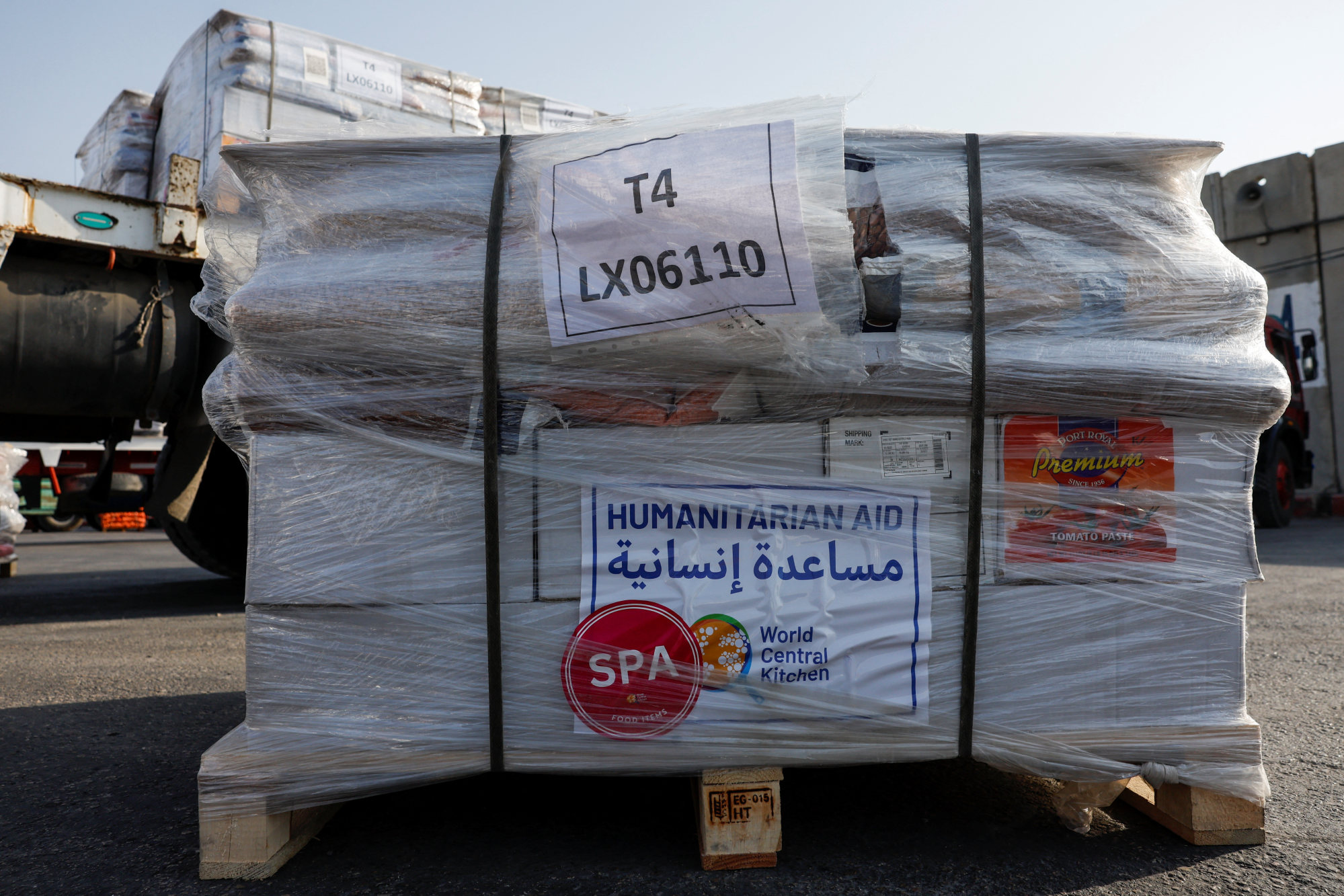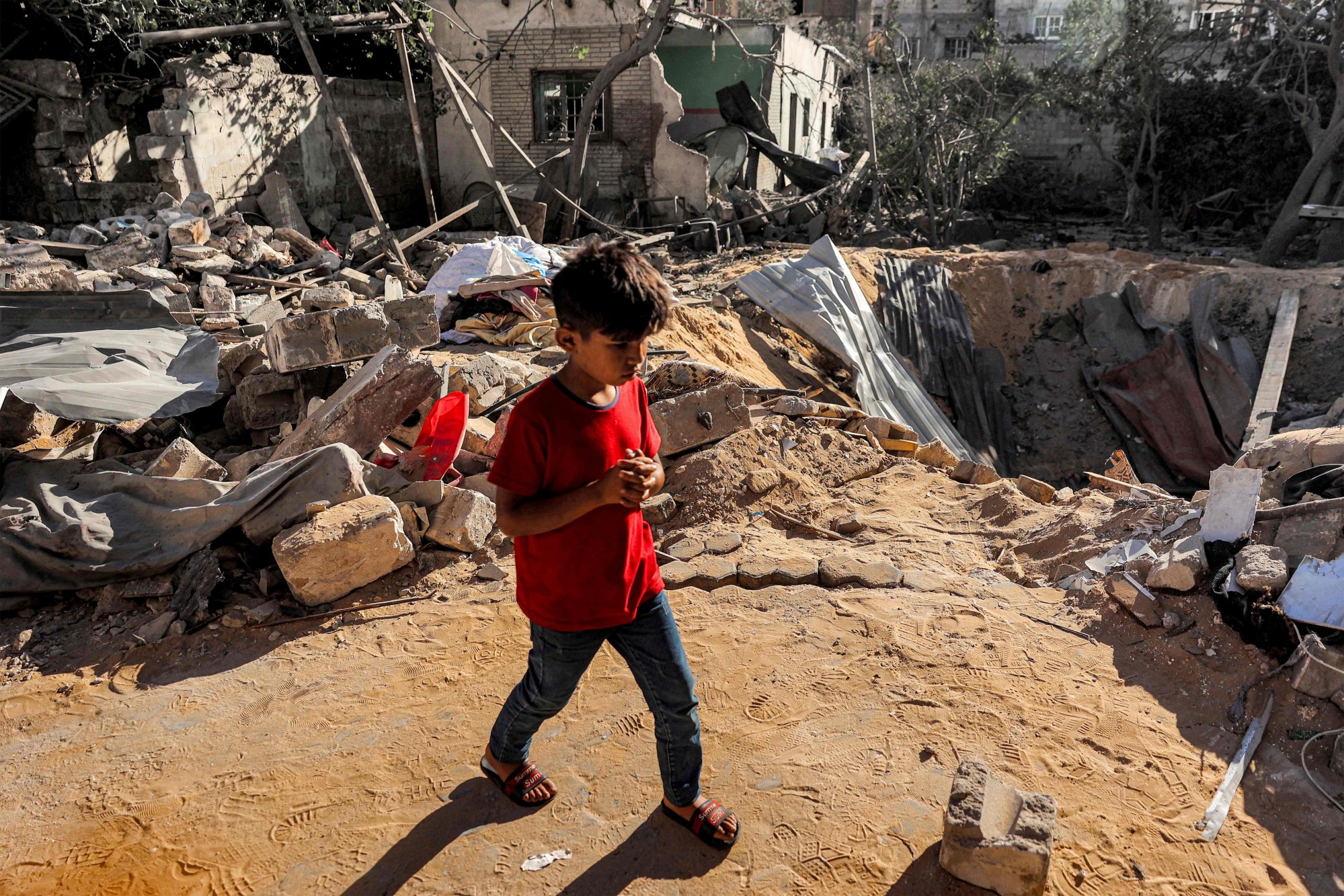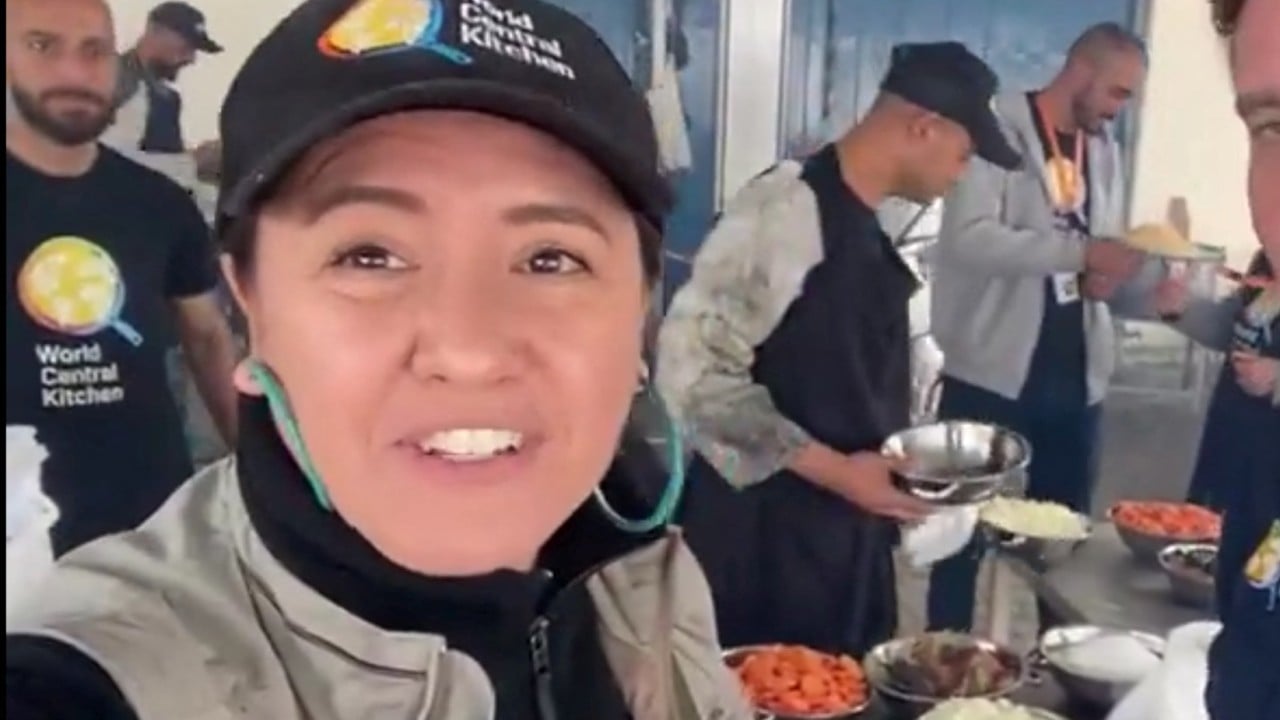
Israel reopens key Rafah crossing for aid to enter Gaza, as US pauses bomb shipment
- The Rafah crossing has been a vital conduit for humanitarian aid since the start of the war and is the only place where people can enter and exit
- The paused shipment of bombs is the most striking manifestation of the growing rift between Netanyahu’s Israeli government and Joe Biden’s administration
The Israeli military said on Wednesday that it has reopened the Kerem Shalom crossing into Gaza, a key terminal for the entry of humanitarian aid that was closed over the weekend after a Hamas rocket attack killed four Israeli soldiers nearby.
The reopening of the crossing comes as the US paused a shipment of bombs to Israel last week over concerns Israel was approaching a decision on launching a full-scale assault on Rafah, a senior Biden administration official said on Tuesday.
The pausing of the shipment is the most striking manifestation of the growing daylight between Israel Prime Minister Benjamin Netanyahu’s government and the administration of President Joe Biden, which has called on Israel to do far more to protect the lives of innocent civilians in Gaza.
Israel has nothing to add to reports Washington halted the supply of some munitions, a government spokesperson said on Wednesday.
He said he had heard the reports but added “I personally and the Israeli government do not have anything to add on these reports”
The United Nations agency for Palestinian refugees said no aid has yet entered and there is no one to receive it on the Palestinian side. Workers fled during an incursion by an Israeli tank brigade on Tuesday that captured the nearby Rafah crossing between Gaza and Egypt, which remains closed.

That limited incursion did not appear to be the start of the full-scale invasion of Rafah that Israel has repeatedly promised. But the prolonged closure of the two main crossings could exacerbate the humanitarian crisis in Gaza, where the UN says a “full-blown famine” is already under way in the north.
The looming operation threatens to widen a rift between Israel and its main backer, the United States, which says it is concerned over the fate of around 1.3 million Palestinians crammed into Rafah, most of whom fled fighting elsewhere. Israel says Rafah is Hamas’ last stronghold and that a wider offensive there is needed to dismantle the group’s military and governing capabilities.
The US, Egypt and Qatar are meanwhile ramping up efforts to close the gaps in a possible agreement for at least a temporary ceasefire and the release of some of the scores of Israeli hostages still held by Hamas. Israel has linked the threatened Rafah operation to the fate of those negotiations.
The Rafah crossing has been a vital conduit for humanitarian aid since the start of the war and is the only place where people can enter and exit. Israel now controls all of Gaza’s border crossings for the first time since it withdrew troops and settlers from the territory nearly two decades ago, though it has maintained a blockade with Egypt’s cooperation for most of that time.
Associated Press journalists heard sporadic explosions and gunfire in the area of the Rafah crossing overnight, including two large blasts early on Wednesday. The Israeli military reported six launches from Rafah toward the Kerem Shalom crossing on Tuesday.
COGAT, the Israeli military body in charge of Palestinian civilian affairs, said the Kerem Shalom crossing reopened early on Wednesday. But Juliette Touma, the director of communications for UNRWA, said no aid had entered as of midday Wednesday and that the UN agency had been forced to ration fuel, which is imported through Rafah.
Gaza’s Health Ministry meanwhile said at least 46 patients and wounded people who had been scheduled to leave Tuesday for medical treatment have been left stranded.
UN agencies and aid groups have ramped up humanitarian help in recent weeks as Israel has lifted some restrictions and opened an additional crossing in the north under pressure from the United States, its closest ally. But aid workers say the closure of Rafah, which is the only gateway for the entry of fuel for trucks and generators, could have severe repercussions.
The UN says northern Gaza is already in a state of “full-blown famine.”
COGAT said 60 aid trucks entered through the northern crossing on Tuesday. Some 500 trucks entered Gaza every day before the war.
Hamas said its fighters were battling Israeli forces in the east of Rafah, where hundreds of thousands of Palestinians have sought refuge from combat further north in the enclave. Islamic Jihad said its fighters attacked Israeli soldiers and military vehicles with heavy artillery near the airport east of Rafah.
The Israeli military said it had uncovered Hamas infrastructure in several locations in eastern Rafah and its troops were conducting targeted raids on the Gaza side of the Rafah crossing and air strikes across the Gaza Strip.
Biden has repeatedly warned Netanyahu against launching an invasion of Rafah. But Netanyahu’s far-right coalition partners have threatened to bring down his government if he calls off an offensive or makes too many concessions in the ceasefire talks.

The US has historically provided Israel enormous amounts of military aid, which has only accelerated since the start of the war.
The paused shipment was supposed to consist of 1,800 bombs weighing 900-kilogram (2,000-pounds) and 1,700 smaller ones, with the US concern focused on how the larger bombs could be used in a dense urban setting, according to the official, who spoke on the condition of anonymity to discuss the sensitive matter. The official said no final decision had been made yet on proceeding with the shipment.
Additional reporting by Reuters


